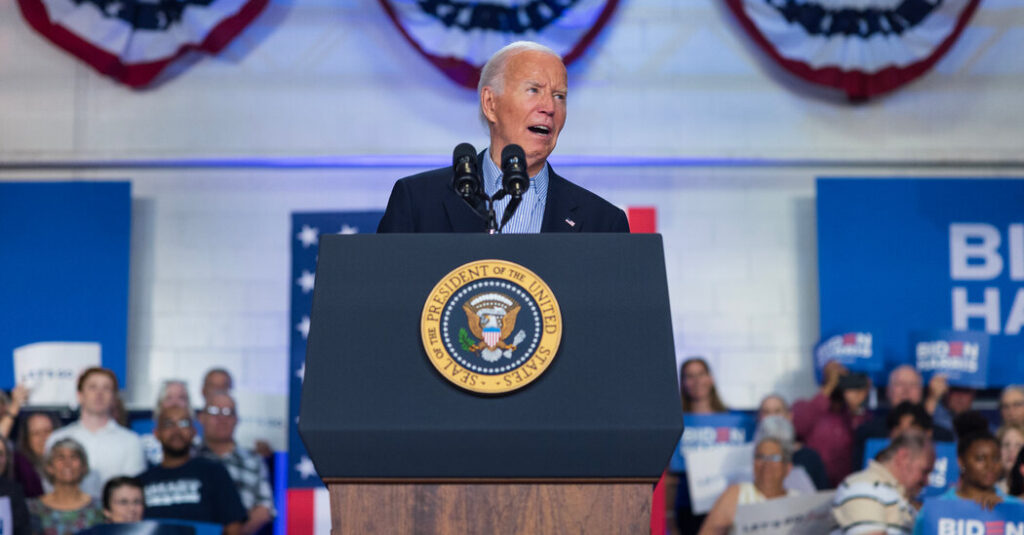Abortion rights supporters in three states announced this week that they had gathered enough signatures to put measures that would enshrine the right to abortion in their state constitutions on the November ballot.
Arkansas organizers on Friday became the last to say they had submitted enough signatures to ask voters in this year's election, just days after groups in Arizona and Nebraska announced they had submitted signatures within the deadline.
In all three states In Missouri and Montana, groups recently announced they had collected enough signatures for such measures, but officials still need to verify the signatures and certify the ballot measures.
Abortion rights could be on the November ballot in up to 11 states, including presidential battleground states such as Arizona, which is expected to be a powerful political weapon for the Democratic Party and the Biden campaign.
Since the Supreme Court overturned Roe v. Wade, abortion rights supporters have won in every state where the issue has been put directly to voters, and in some cases the measures have led to surges in voter turnout and victories for Democratic candidates.
So far, six states have given final approval to allow abortion on their ballots this November: Florida, Colorado, Nevada, New York, Maryland and South Dakota.
But of all the states putting the question to voters this year, Arkansas may pose the toughest challenge for abortion rights advocates. It's a deeply conservative state with a large evangelical population and one of the few where a minority of voters support abortion rights. In neither the presidential nor congressional races is Arkansas considered competitive.
Arkansas also has one of the strictest anti-abortion laws in the country, allowing abortions only in medical emergencies to save the pregnant woman's life. As a result, there were no reported abortions in the state in 2023, according to the state health department.
The group leading the referendum campaign, Arkansas Limited Government, is trying to balance its push to expand current law with the state's conservative stance. Its proposed amendment would allow abortion only up to 18 weeks after fertilization, except in cases of rape, incest or if the fetus cannot survive outside the womb. The organizers' relatively conservative approach — most bills this year would allow abortion up to 24 weeks — meant that some national abortion rights groups did not publicly support their effort.
In Arizona, current law allows abortion up to 15 weeks of pregnancy, with no exceptions for rape or incest. The proposed amendment would allow abortion up to about 24 weeks of pregnancy, with additional exceptions for the mother's health. And in Nebraska, organizers said they had garnered enough support for two competing proposals: one to strengthen the state's current 12-week abortion ban, and one to allow abortions until the fetus is viable.
To gather enough signatures in Arkansas, the group targeted not only women outraged by the loss of their constitutional right to an abortion, but also liberals and centrists wary of government abuse of power. Among the petitioners were several doctors concerned about legal ambiguity over when abortions can be performed.
“We have long believed that, despite stereotypes and portents from our state's voting history, Arkansans understand that government has no place in making health care decisions for their residents,” said Lauren Cowles, the group's executive director. “Our signature-gathering efforts have proven that ensuring the right to an abortion transcends partisan politics, economics and religion, and the November election will solidify that.”
As in other states, the secretary of state's office must officially certify the results. In addition to collecting the mandatory 90,704 signatures, Arkansas organizers also needed to meet certain minimum numbers in at least 50 of the state's 75 counties. The group said it has collected more than 100,000 signatures in at least 53 counties and plans to turn over the petition on Friday afternoon.
The Secretary of State's office has 30 days to verify the petitions and an Aug. 22 deadline to certify all November ballot questions and candidates.
If the Secretary of State determines there are not enough signatures because some are invalid, the group may be given additional time to make up the shortfall.
Legal challenges are also possible, and opponents of the effort (including a former aide to Gov. Sarah Huckabee Sanders) and anti-abortion groups are already working to address them.
Abortion rights activists in Arkansas say they have faced threats and harassment, and some voters have refused to sign petitions out of fear of personal or professional retaliation if the list of signers is made public.
Arkansas is the only state in the South that allows residents to put a question to voters, and in recent years such measures have raised the minimum wage above the national average and legalized medical marijuana.

